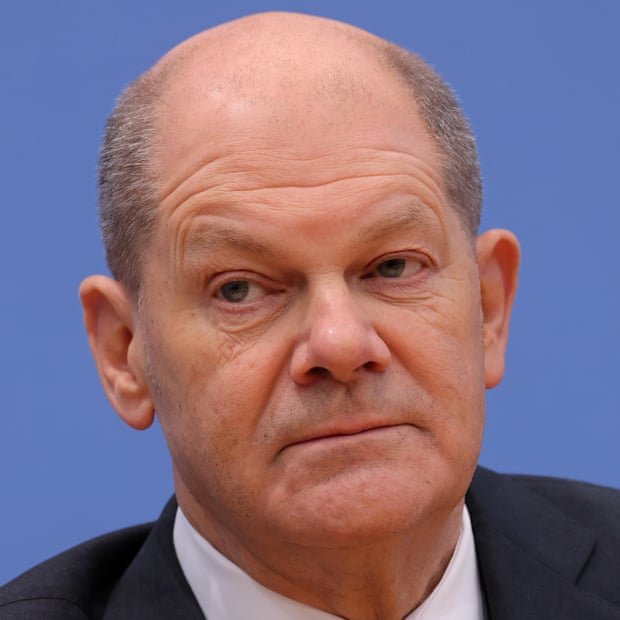Olaf Scholz to be voted in as German chancellor as Merkel era ends | Olaf Scholz
Olaf Scholz is to be voted in as chancellor by the Bundestag on Wednesday, opening a new chapter in German and European politics as the Merkel era comes to an end.
Scholz, the outgoing deputy chancellor and finance minister, will lead a government composed of his Social Democrat party, the business-friendly Free Democrats and the Greens, a coalition of parties never tried before at the federal level in Germany.
The alliance brings to a close 16 years of rule by Angela Merkel, who chose not to run again. During her turbulent time in office, spanning eurozone crises, more than a million refugee arrivals and Brexit, there have been four French presidents, five British prime ministers and eight Italian premiers.
The 177-page coalition agreement, entitled Dare More Progress, was signed by the party leaders at a ceremony at Berlin’s Futurium Museum on Tuesday. It was “the moment the post-Merkel era begins for real”, tweeted the political editor of Deutsche Welle’s international channel, Michaela Kuefner.
The agreement had already received strong backing from the three parties, clearing the way for Scholz to be voted in by Germany’s lower house on Wednesday.
Profile
Who’s who in the new German cabinet
Show

Chancellor: Olaf Scholz (SPD)
The 63-year old former mayor of the northern port city of Hamburg served as finance minister under Angela Merkel as part of the “grand coalition” between his SPD and her conservatives.
He engineered a multibillion-euro rescue package for the economy during the coronavirus pandemic.
He said his first foreign trip as chancellor would be to France, a nod to the importance of a functioning Franco-German alliance to reforming the eurozone and strengthening the European Union.
Vice-chancellor and minister for economy, climate protection, digital transformation and energy transition: Robert Habeck (Greens)
The 52-year-old environmental party co-leader will head a beefed-up ministry that has overseen both the distribution of financial lifelines to businesses affected by lockdown and implementing a strategy to develop large-scale green hydrogen. In future, it will also have responsibility for the climate issues that are the Greens’ raison d’etre.
Finance: Christian Lindner (FDP)
The 42-year-old leader of the liberal and fiscally conservative FDP has said he will keep in place strict limits on new public borrowing and not raise taxes to finance ambitious investments to wean the economy off fossil fuels and upgrade Germany’s infrastructure for the digital age.
His championing of austerity and strict budget rules in the eurozone could set him on a collision course with counterparts in southern EU states such as Italy and Spain.
Foreign affairs: Annalena Baerbock (Greens)
Baerbock, 40, will be Germany’s first female foreign minister. The Greens’ co-leader will have to balance her party’s demands for a tougher line on human rights in Russia and China against Scholz’s likely preference not to risk a confrontation with the two countries over issues such as Taiwan and Ukraine.
Defence: Christine Lambrecht (SPD)
Lambrecht, 56, who currently serves as justice minister, will become the third successive female defence minister after the…
Read More: Olaf Scholz to be voted in as German chancellor as Merkel era ends | Olaf Scholz
